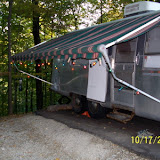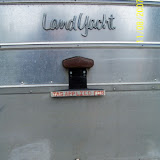I sat down today and visually visited my high school Facebook friends. I’m thinking about the whole idea of "prom." Back then, there were comings-out of girls in the elite society of white girls. I guess I should go ahead and crack the old nut: I had my coming out much later, around the age of 27.
At Athens High School, there was no prom. Along with desegregation, prom was discontinued. I think of that today with the news of the high school in Fulton, MS, that cancelled their prom because a lesbian couple planned to go together as a couple.
That the school would cancel its prom, placing the burden of a stupid adult decision on the backs of a couple of kids is so sad to me for the two girls and for all the kids who looked forward to their prom. But, you know what? I've been there, in a couple of ways. For one, I went to a school that did not have a prom for reasons adults thought made sense. Secondly, I've felt the social ostracism of being controversially different. With everything in me, I wanted so much to fit in and, especially, to not rock the boat. Of course, we had gay schoolmates back then -- we're everywhere, always. But, it was hard for those who could not pass. One person I know of committed suicide. I had no language for or consciousness of my own gayness back then, but I did feel the pain of difference. But, really, back then, we were frying other fish, so to speak. I can remember only that we were all twisted up about race.
So, why did my high school not have prom? Because: parents of white girls did not want the risk of their girls dancing with black boys. And, school officials did not want the set-up for inter-racial violence. That's it, in a nutshell.
Proms and coming out balls were (are?) for putting people of the same education and social class together to make couples, to make families, to make society. That's why schools once were in neighborhoods. Society girl rituals are about presenting young ladies to the world, to say, "I'm ready -- I will graduate, I'm fertile, come and court me." The more elite clubs are about social engineering sharpened to a point. And, as the Baptists said back then, everyone knows if you allow teenagers to have sex before marriage, it could lead to dancing. No one thinks overtly, out loud about the design of social rituals. It's all about birds of a feather. That's the thinking of the good ol' days -- the Old South.
Proms and coming out balls were (are?) for putting people of the same education and social class together to make couples, to make families, to make society. That's why schools once were in neighborhoods. Society girl rituals are about presenting young ladies to the world, to say, "I'm ready -- I will graduate, I'm fertile, come and court me." The more elite clubs are about social engineering sharpened to a point. And, as the Baptists said back then, everyone knows if you allow teenagers to have sex before marriage, it could lead to dancing. No one thinks overtly, out loud about the design of social rituals. It's all about birds of a feather. That's the thinking of the good ol' days -- the Old South.
Somewhere along the way, the elite sorority I mentioned earlier, the one that would finally move me out of strangeness into popularity, hosted a formal-dress dance for the white kids, by invitation only. The brief time I was a pledge, I wrote kids' names on bids and envelopes, decorated the ballroom, and ran the scut-work errands for the sorority. The bids were presented at the door of the Athens Country Club (need I say, whites only Country Club?), and one year, at the ballroom of the Jetport in Madison.
Above, that's the photo from my senior year, dressed in the gown my mother made for me. In our alternative-prom formal, couples (boy-girl) promenaded across a stage in a ceremony called the "lead-out." The tuxed boy with the gowned girl on his arm walked with head-high dignity out into the spot-light and paused for the photograph. Where is that tuxed boy now? He was older than me by 3 years -- an older man.
This same sorority also held the Sadie Hawkins dance every year. Whites only, of course. For this dance, the girls asked the boys, turning the tables of chivalry. I think that dance was at the old Fairgrounds in a barn-like building.
The idea of both dances is that they were off school property in private locations, hosted by a private group that was not officially affiliated with the school. Parents were chaperones. Teachers and school officials were invited, unofficially. I wonder if anyone back then questioned what we were doing? Well, why should anyone's conscience be any different from mine? There I was, a Christian, a caring person -- and a self-absorbed teenager trying to fit in.
Why does my mind anachronistically wish to have been more enlightened back then? The lines were drawn for us, racially and sexually. We all knew our "place" in society. I suppose by now, I have moved through my life to such a place that I find it impossible to give in to nostalgia. Sure, it was a sweet time at times, but would I go back and live it again? Not just no, but, hell no.



